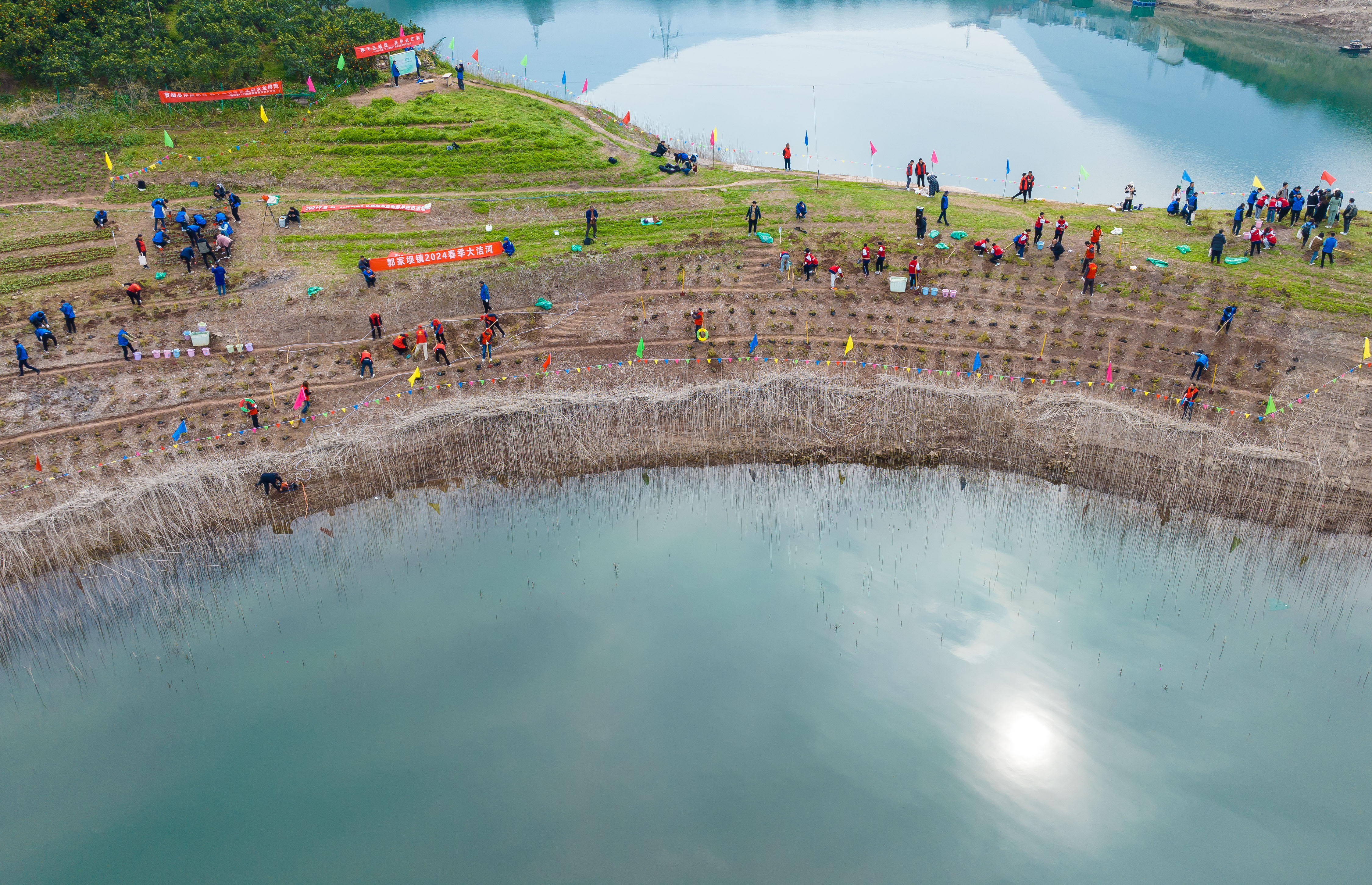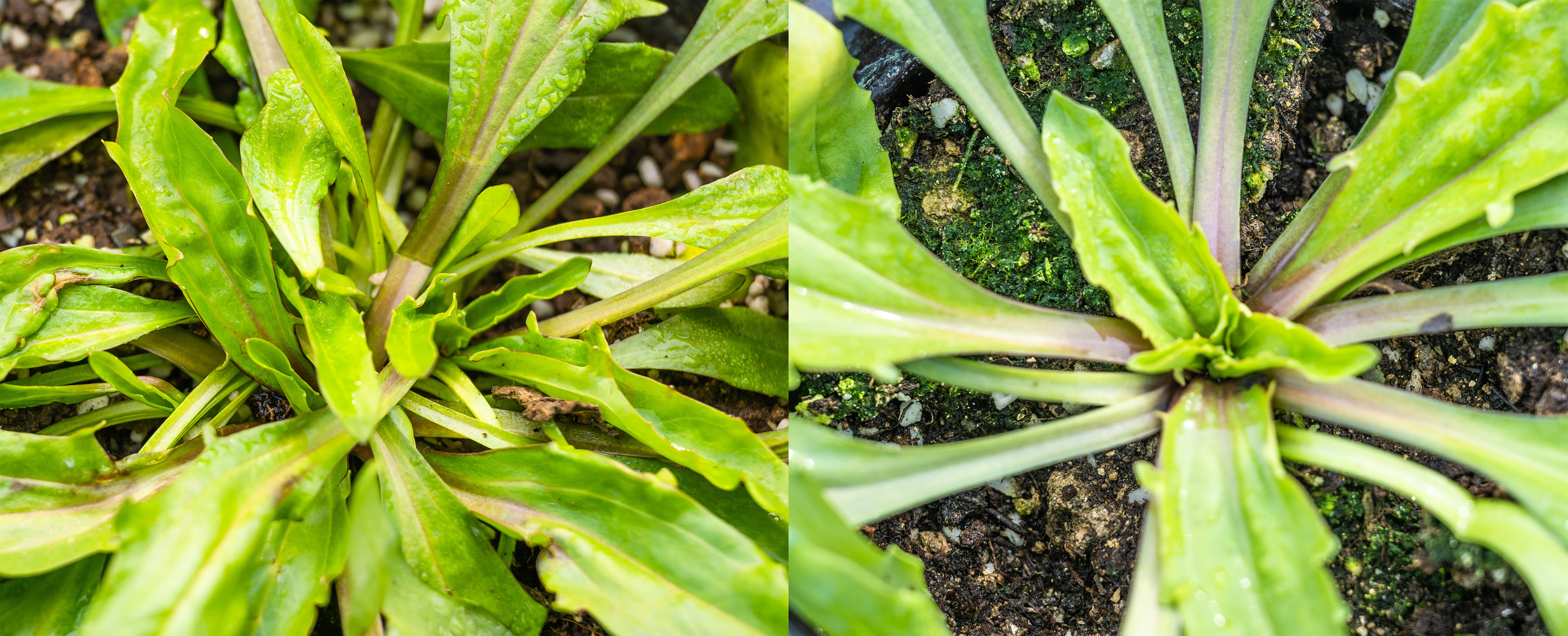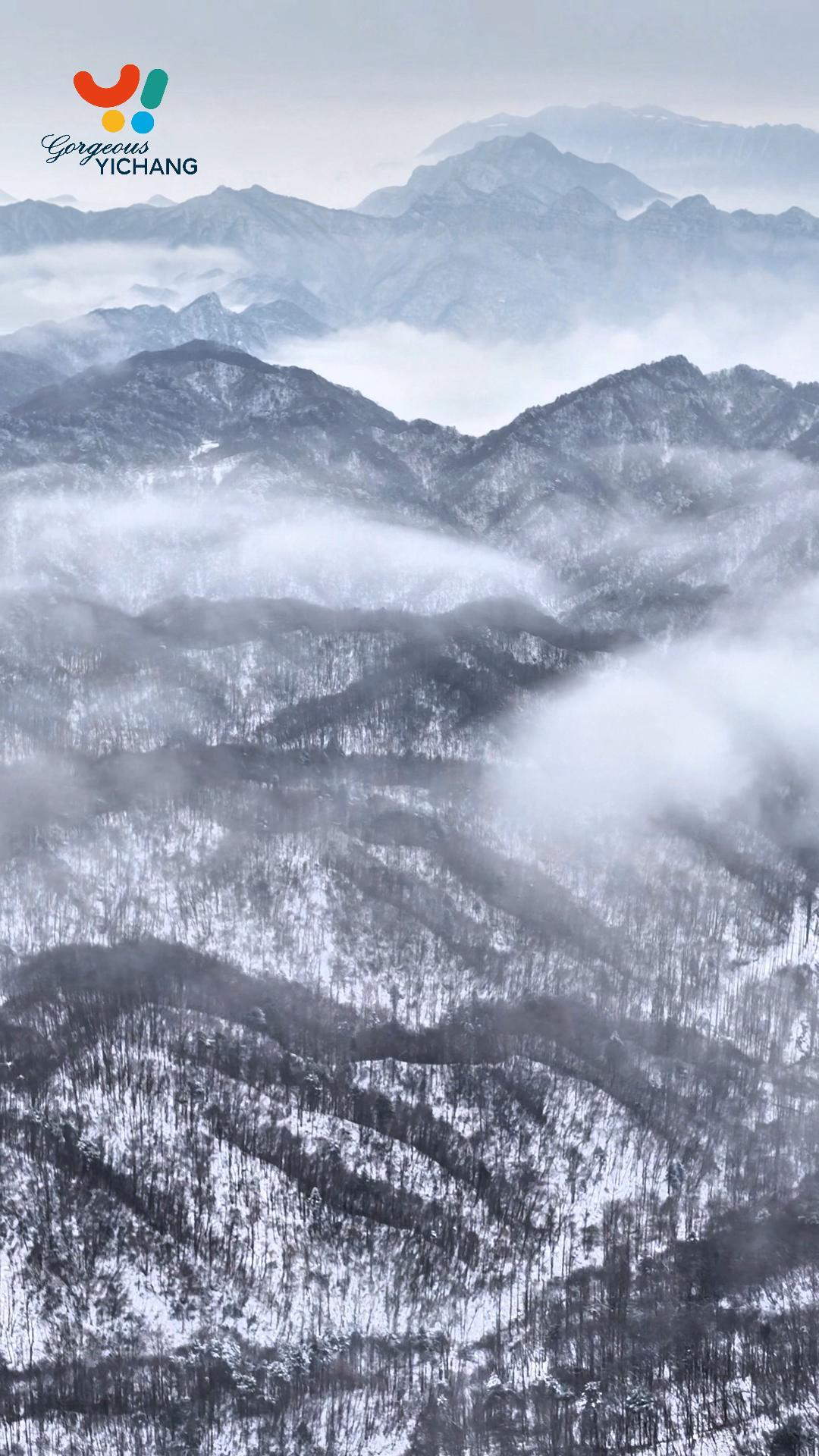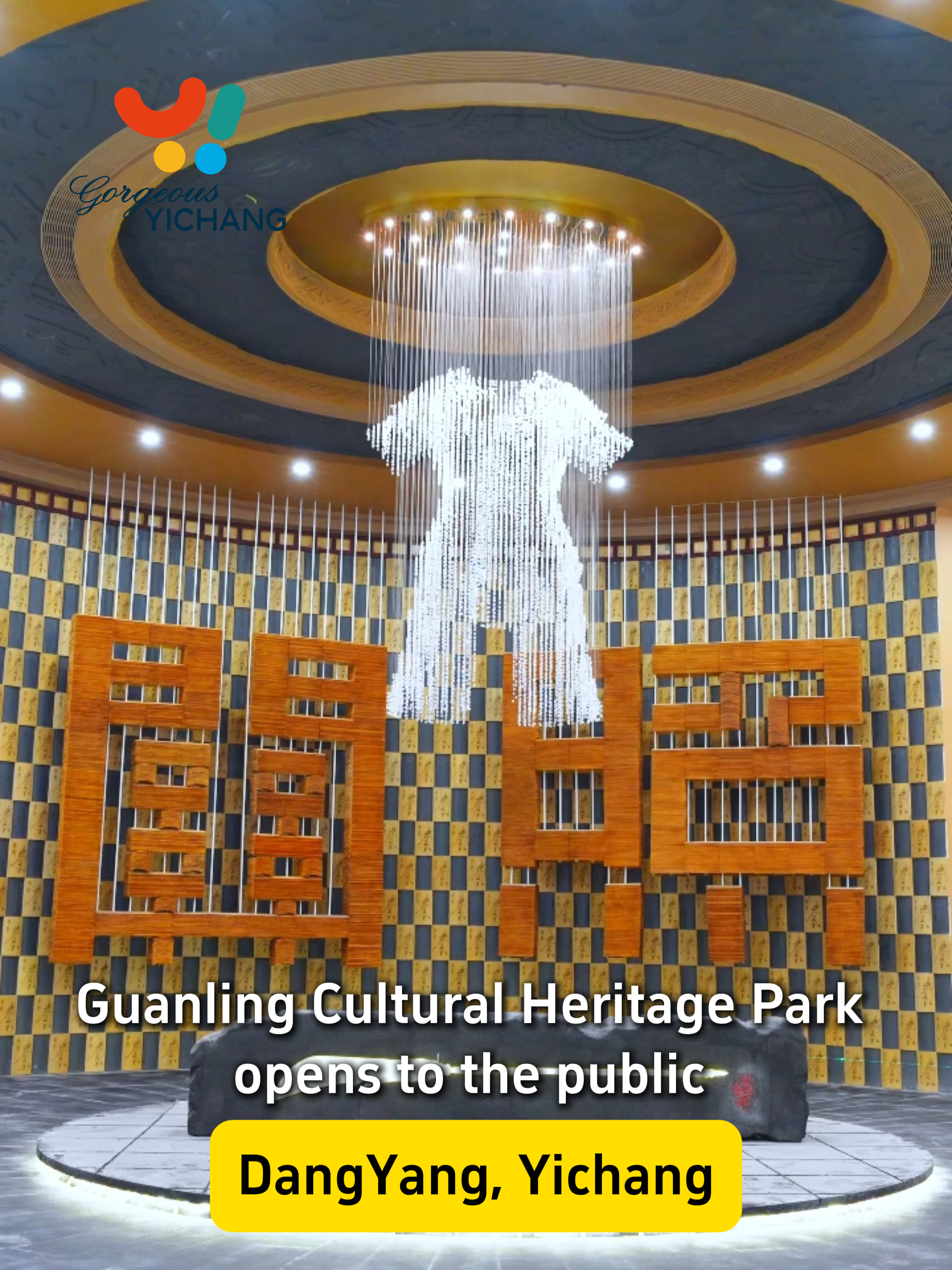Research center finds new way to restore ecology around reservoir
2024-03-19 20:03:26
Translator and English Editor: Chen Zai
Photographer: Zheng Jiayu
The Yangtze River Biodiversity Research Center recently planted 3,000 artificially bred endangered plants in the Three Gorges Reservoir area. This effort is part of their ongoing work to restore ecology in the Yangtze River basin.

Photographer: Zheng Jiayu
The Yangtze River Biodiversity Research Center recently planted 3,000 artificially bred endangered plants in the Three Gorges Reservoir area. This effort is part of their ongoing work to restore ecology in the Yangtze River basin.

<caption>The plants are reintroduced to a small island in the middle of a river in Guojiaba Town, Zigui County, Yichang City
On March 12, the center reintroduced 1,000 Myricaria laxiflora and 2,000 Plantago fengdouensis to the riparian zone near the reservoir. The center is affiliated with China Three Gorges Corporation.
The riparian zone is a unique area that forms when the submerged land is cyclically exposed due to seasonal fluctuations in water levels.
The Three Gorges Project has a winter power generation water storage level of 175 meters, and a summer flood control level of 145 meters. This creates a riparian zone in the Three Gorges Reservoir Area covering 348.9 square kilometers, with a watermark fluctuation range of up to 30 meters.

<caption>The Plantago fengdouensis bred through space mutation (left) is compared to the Plantago fengdouensis without space mutation (right).
The Plantago fengdouensis is an herbaceous plant found exclusively in the riparian zone of the Three Gorges area. It greatly contributes to improving the environment there. However, the plant's natural propagation is at risk due to its demanding growth requirements, putting it on the endangered list.
The research center responded by utilizing space mutagenesis technology to modify the genetic material in the seeds. This was done to improve the vitality and survival rate of the Plantago fengdouensis.
In 2021, the research center sent 4,000 Plantago fengdouensis seeds into space on China's Shenzhou-13 spaceship. After 183 days, the seeds returned to Earth. The center then conducted selection and testing on the space seeds, resulting in the cultivation of the "Space Seed" with stable performance and excellent characteristics.
The Myricaria laxiflora, a riparian zone plant in the Yangtze River, resists erosion. Its strong root system securely anchors soil, making it ideal for eco-restoration in riparian zones.
In 2007, the center started studying the Myricaria laxiflora. They found that by using its stems for asexual reproduction, they could increase the seed germination rate to over 95 percent. This solved the breeding problem and allowed for more seedlings.
The center has completed whole-genome sequencing of Myricaria laxiflora, revealing genes linked to "water submersion tolerance" and "erosion resistance." In the future, gene extraction tech will enable the center to cultivate superior varieties, benefiting riparian zone management.






